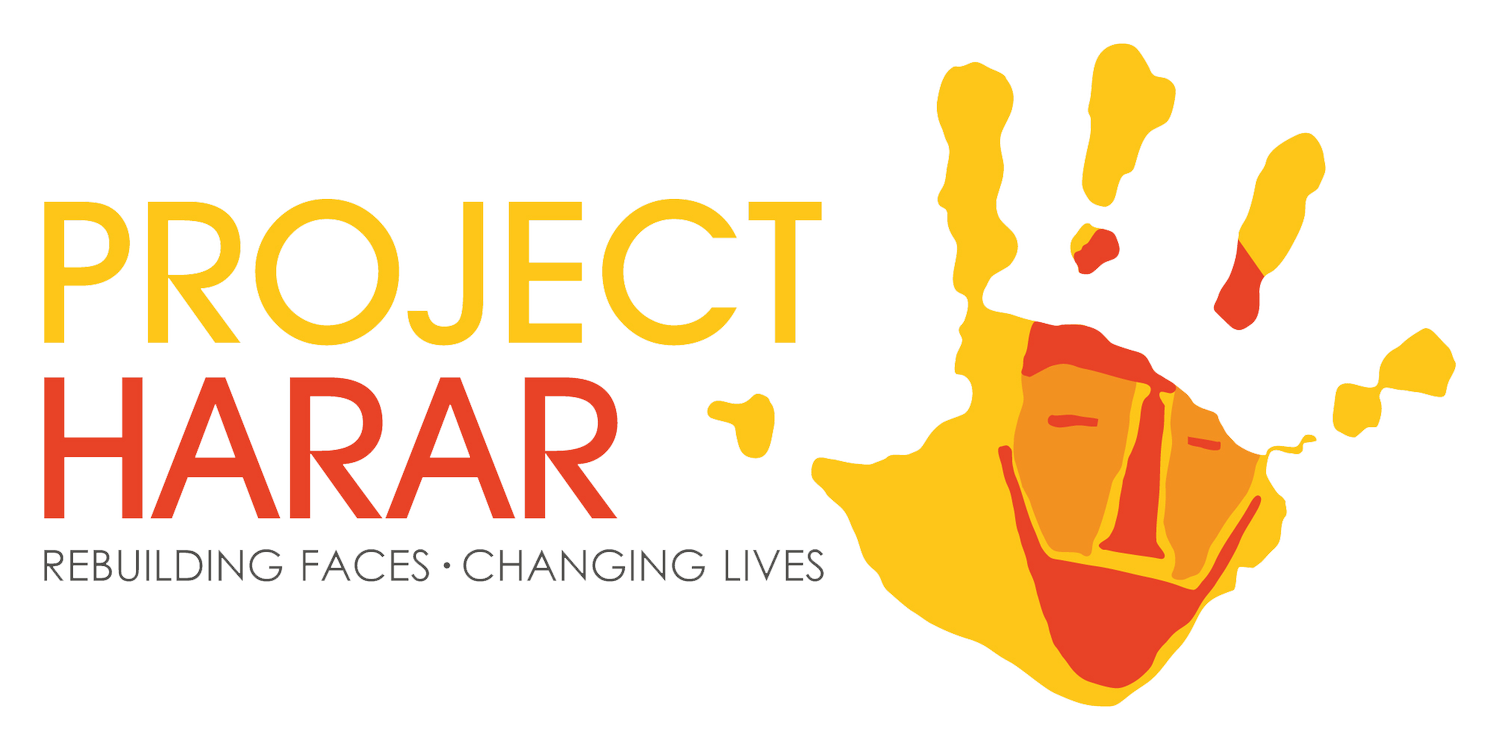February 2021 Cleft Programme Amhara
February 2021
At the end of February the Project Harar Ethiopia team travelled to the Amhara Region to oversee the first cleft mobilisation in the region for a whole year. During the last census the region of Amhara was reported to have a population of over 21,000,000.
Cleft treatment is available in the region’s capital - Bahir Dar. However, like the majority of Ethiopia, the geographical landscape is challenging when it comes to transport links to the capital. The area covered by the region is extensive and the population is dispersed with big gaps between each community or zone. During the two week mobilisation in Amhara an incredible 157 patients came to Bahir Dar to be registered for treatment, this is by far the largest number for a single mobilisation in Project Harar’s history!
There were several reasons why such a large number of people came for treatment at this time. Over the past few months Nigatu, Project Harar’s Programme Officer for the Amhara region has been working on a mass media campaign for cleft lip and palate awareness raising. Nigatu liased with Zonal Health Facilities to push the message out on their facebook pages and also via local radio broadcasts in regional dialects. A broadcast on a local television station also highlighted Project Harar’s cleft work.
Amanuel Tafese, Executive Director and Country Head of Project Harar Ethiopia believes: “The success of our recent work in the Region of Amhara has been very much down to Project Harar Ethiopia’s increased focus on awareness raising messaging. Although in the most rural areas the average family would not have access to the internet or social media it is slowly becoming more common in other areas. I also think the broadcasts have increased dialogue around cleft lip and palate, which is heavily stigmatised in rural areas because of limited health messaging. Discussions about cleft on the radio, on social media and television broadcasts show people affected by cleft conditions that they are not alone. It is also likely that this encouraged people to pass the message through word of mouth.”
Discussions about cleft on the radio, on social media and television broadcasts show people affected by cleft conditions that they are not alone
— Amanuel Tafese, Executive Director and Country Head of Project Harar Ethiopia
Out of the 157 patients registered, 144 were able to receive surgery. Health extension workers and health care workers from local health facilities were on hand to assist with patient registration and to enforce Covid secure measures such as social distancing and Covid testing. The 13 patients who were unable to receive surgery were presenting signs of malnutrition or low blood pressure, they have been referred to their local health authority to receive nutritional supplementation and advice from Project Harar. These families were quite upset that their children would have to wait longer for treatment and were in need of emotional counselling – which they received in Amhara before returning home. The therapist explained that there was still hope and that eventually their child would be able to have the operation.
Flooding in the Amhara Region is unfortunately a recurring issue and destroys vast amounts of agricultural produce which is the source of income and food for the majority of families we meet. This can exacerbate malnutrition and livelihoods, presenting further barriers to access to healthcare.
During the two week programme our partners, Smile Train, were able to bring one of their Ambassadors, Taye Worku, who is a media and PR specialist to observe the programme and raise awareness. Taye posted on his facebook page: “What could be more satisfying for ANYBODY than making this amazing half moon (a smile!) Amazing mobilization of 200+ patients in under one month by Project Harar.”
Last year, in March 2020 Project Harar paused the mobilisation aspect of our cleft services across Ethiopia. This was in response to the threat and impact of Covid-19 and an effort to protect patients, families, programme staff and our partner hospitals from catching and spreading the virus. As we learnt more about the virus and ways in which we could protect each other and prevent spread, were able to re-launch the mobilisation of patients needing cleft surgery in the Oromia region. You can read more about our programmes re-launch in Oromia here and about the Covid Response Programme we developed whilst elective surgery was on pause



